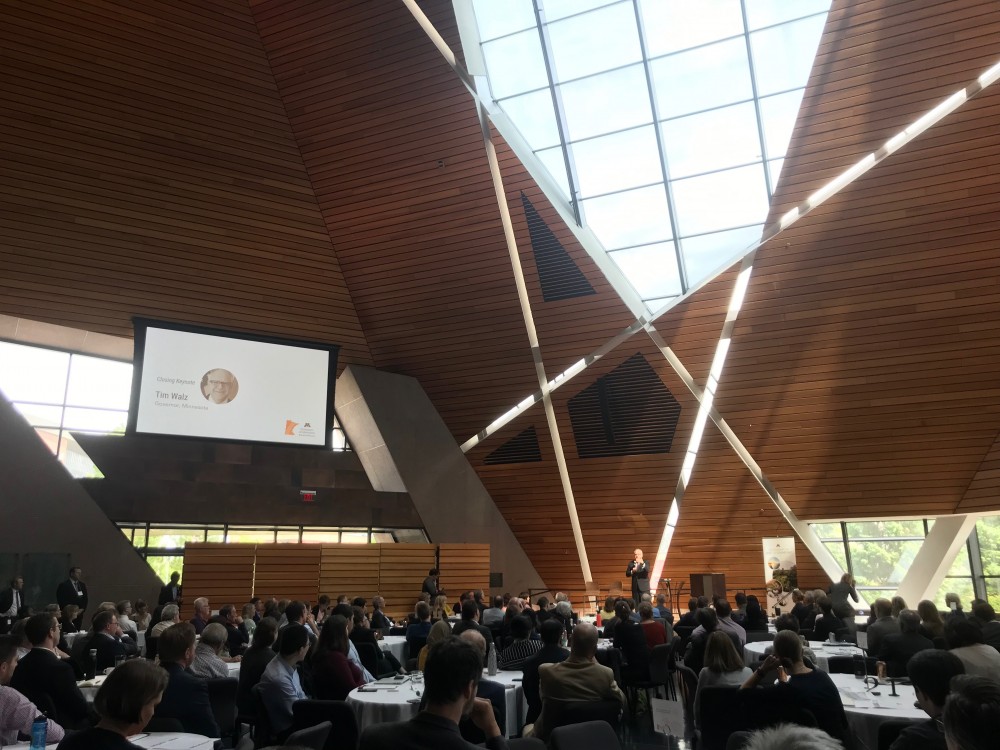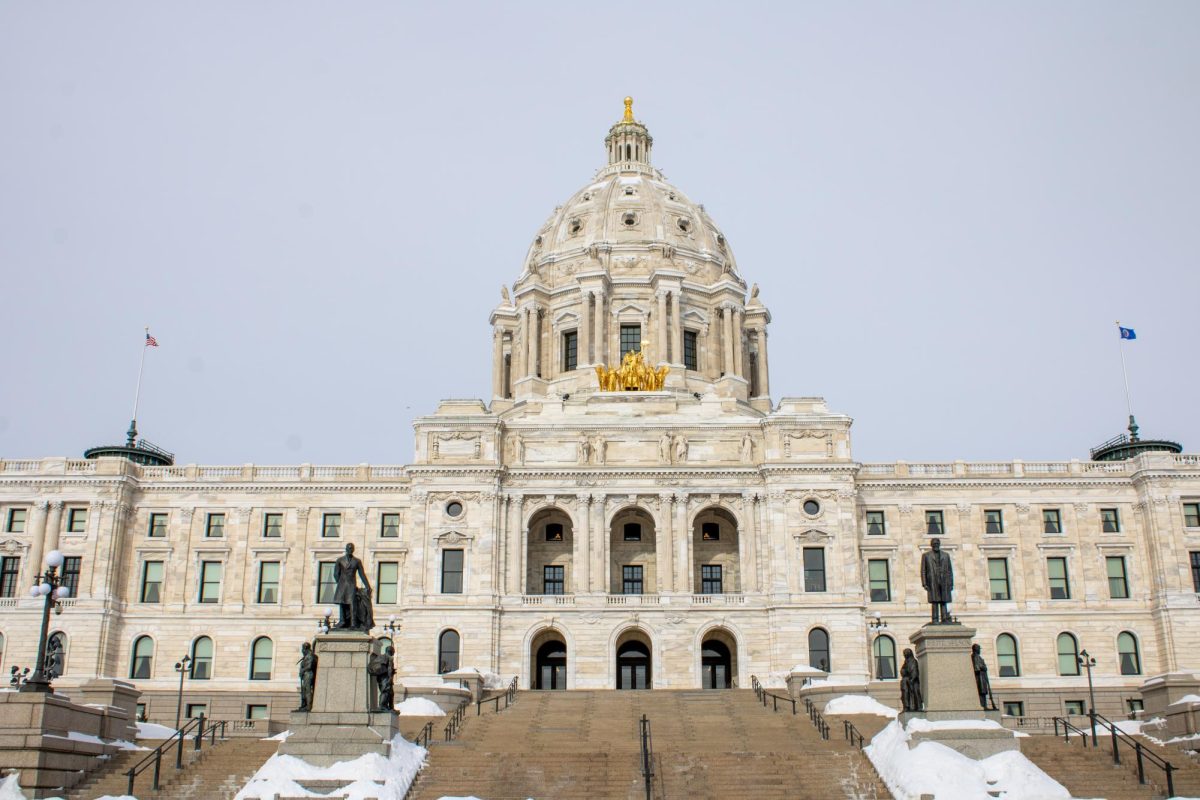Elected officials, business people and students alike gathered at the McNamara Alumni Center Friday to discuss how to use clean energy to fight climate change.
The forum, hosted by the University of Minnesota’s Institute on the Environment, was one of a three-part series which hopes to facilitate discussion on clean energy. Among the many in attendance were Gov. Tim Walz and U.S. Sen. Tina Smith, D-Minn., who detailed steps they plan to take in the coming months.
“I think it is essential that we lead,” Smith said. “We need to be ambitious. We don’t have any time to waste.”
Smith introduced a bill in the U.S. Senate in early May to address climate change concerns. The bill, called the Clean Energy Standard Act of 2019, aims to get the U.S. electric sector to net-zero emissions by the 2050s.During the forum, Walz also said that he plans to increase Minnesota’s clean energy efforts.
“There is a path; it’s not always linear,” Walz said. “If it comes with momentum, it gets [to the goal].”
The forum’s purpose was to explore potential pathways to an economy built on clean, net-zero emission energy sources, such as wind and solar, in Minnesota. The event’s keynote speeches and panel discussions included voices from around the world, ranging from the business sector to the Legislature.
Corporate leaders, such as Peter Frosch, CEO of Greater MSP, said during a panel discussion that, for a significant change by 2050, a strategic plan must be put in place. A prominent way of doing this is through collaboration between the private and public sectors, he said.
“Minnesota has the capability of leading,” Frosch said. “Someone has to [do it]. I’d prefer for it to be us.”
Xcel Energy, one of the largest public utility companies in the U.S. and a sponsor for the event, also pledged to use renewable energy as its number one energy source by 2050.
“All [of this] is part of the big system,” Xcel Energy CEO Ben Fowke said at the forum. “Climate change shouldn’t be a partisan issue.”
Some in the audience believed that a total cultural shift is needed to make the goals discussed at the forum possible.
“We could easily do this in ten years if people saw the crisis as it really is,” said Nancy Laskaris, an audience member and retired public defender. “It’s treated as an academic crisis instead of as existential.”
In addition to lawmakers and businesses, youth leaders also participated in the forum. Thirteen-year-old Olya Wright and high school junior Tiger Worku, two youth activists in Minnesota, participated in a panel on how cities around the world can push for clean energy measures. The panel generated discussion among audience members that younger leaders, including University students, may be driving the charge in addressing climate change concerns.
Levi Palmer, a University senior who attended the forum, was involved in a Grand Challenges course that engages with the public and politicians on the clean energy movement.
“We were focused on having Minnesota transition toward 100 percent clean energy,” he said.
Minneapolis Ward 11 City Council member Jeremy Schroeder, who attended the forum, said he was struck by the extent to which youth are leading the movement. He hopes to harness that public responsiveness in the City Council.
“We are working with an urgency and really treating climate change as a crisis,” Schroeder said. “[We need to] make sure we continue to lead in Minneapolis.”







